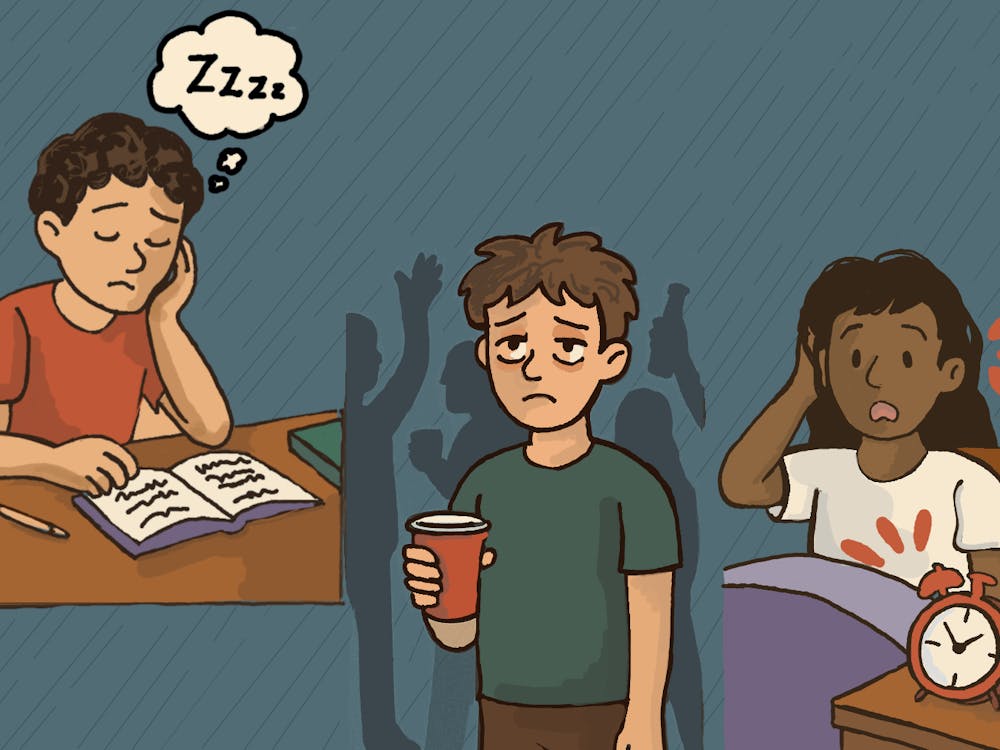I have been putting off my job search all semester.
As friends begin to receive offers and chatter circulates around interviews and applications, I’ve begun to feel the pressure mounting. Still, I’ve managed to avoid putting pen to paper and writing my first cover letter.
Writing a cover letter is an emotional rollercoaster, an existential experiment and just about the most difficult task I’ve had to do this entire semester — even as a fourth-year Comm student. Sure, I’ve written a few before — but never for real post-grad jobs.
Still, the “real” world is aggressively calling my name.
I know I’m not the only one struggling with this — as evidenced by the abundant resources accessible via a quick Google search. Cover letter samples, templates, formats and advice all claim to house the algorithm for a successful letter — but try as they may, these Google searches will not help you.
Everyone is looking for the right answers. What are the exact words and phrases one must use to secure the dream job? Despite several “expert” opinions, nobody seems to know the magic bullet answer.
Honestly, if cover letters called for our more interesting, peculiar personal skills, I might actually enjoy writing one. In my dream world, I would send employers the following:
“I think I am qualified for this job because I have extremely advanced nostril-flaring skills and can fry the perfect over-medium egg all while singing to Mariah Carey’s ‘All I Want for Christmas is You.’ I am an excellent procrastinator and can cram large amounts of insignificant information into my brain before a test or presentation. I have a keen awareness of cheese types and could distinguish Camembert from Brie with my eyes closed.”
Unfortunately, cover letters do not call for a list of my charming idiosyncrasies.
So, as I sit down to begin the first cover letter of my fourth-year job search, I have been forced to get to the bottom of just why the robotic language and predictable, boring template usage of cover letters creeps me out so much.
To start, cover letters are a medium for shameless self-promotion of one’s “real-world” skills, like leadership and communication — does running for president in sixth grade count? — and I dread the thought of explaining my qualifications to a complete stranger who goes by the name of “To whom it may concern.” Talking about oneself in an excessively complimentary light feels superficial and awkward.
Further, is what I’m writing to the anonymous recruiter really unique? If regurgitating information and phrases which have become so widely accepted by both applicants and employers, what is the point?
In applying for creatively-minded jobs like I am doing, the last thing I want to do is come off as boring and cookie-cutter. I am weird and psychotic — in the friendliest, most benign of ways — but I wonder if my future employer needs to know that in my documented first impression. Should personality come first?
Throughout my research on how to tackle the beast, the primary advice coming from experts was to break the traditional rules called for in any template or online sample. Eureka! They emphasize the lasting impression of creativity and personal voice rather than the margins on a page.
If it puts me at an advantage over my competitors, I would do just about anything — even if it means writing a risky cover letter which gets tossed in the trash. But it’s hard to calculate that risk without understanding the office vibes of every company I apply to, and taking that creative risk may mean jeopardizing any chance of employment.
Finally, in this grueling job-search process, is anyone really willing to go against the status quo? Who dares defy the norm in a job application — a process which will determine the near future and the only thing you, as a soon-to-be U.Va. alumnus, will be worrying about for the next semester?
I am absolutely, positively worried.
Allie’s column runs biweekly Thursdays. She can be reached at a.lank@cavalierdaily.com.







